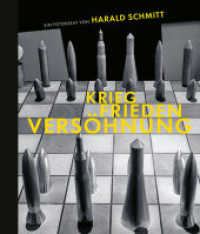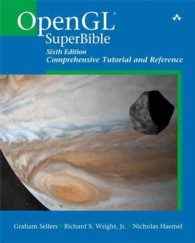- ホーム
- > 洋書
- > 英文書
- > Politics / International Relations
Full Description
Karel Kaplan spent eighteen years of his professional life in the Communist Party of Czechoslovakia, in which he held positions at all echelons of the party hierarchy. His extensive experience and his access to the party's official archives form the basis for this unique account of the internal life and functioning of the Communist party. Although the CPCz has broken from Moscow's direct influence, Kaplan's description of party structure and function resemble those found in other parties under Communist rule. All are based on a monopoly of power, have a common social role and similar internal organization, and draw upon Soviet and Leninist principles of party construction. Focusing upon the actual working structure that exists behind the party's formal facade, Kaplan maintains that the party is able to function as the backbone of the power monopoly in Communist societies because all of its members are bound to it by ideological, power, social, and existential ties. These ties may vary in substance and effectiveness, but they operate at all levels and in all domains of the party organization. His insider's account of how power is brokered and maintained lends a unique perspective to our understanding of the party in Communist society today.
Contents
Preface -- Introduction -- Institutions Without Power -- The System of Power Groups -- The Party Apparat -- The Party Aktiv -- External Influences -- Instead of a Conclusion -- Appendixes -- Structure of the Party Apparat I: District Level -- Structure of the Party Apparat II: Regional Level -- Structure of the Party Apparat III: Central Committee (as of 31 December 1967) -- Structure of the CC Ideological Department (1965) -- Sections of the Ideological Department (1965) -- Budged of CPCz Organs and Institutions in the Years 1967 and 1968








